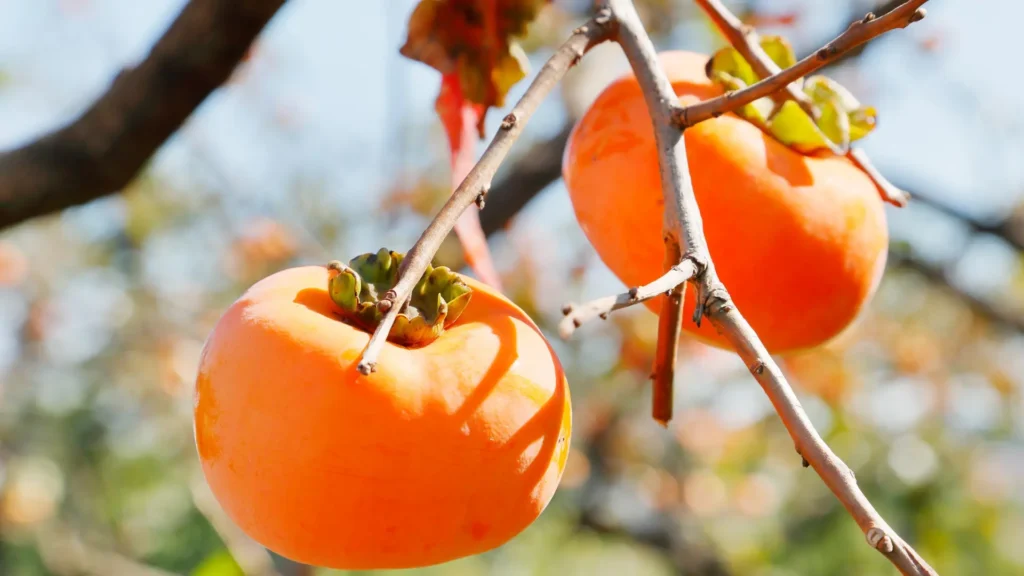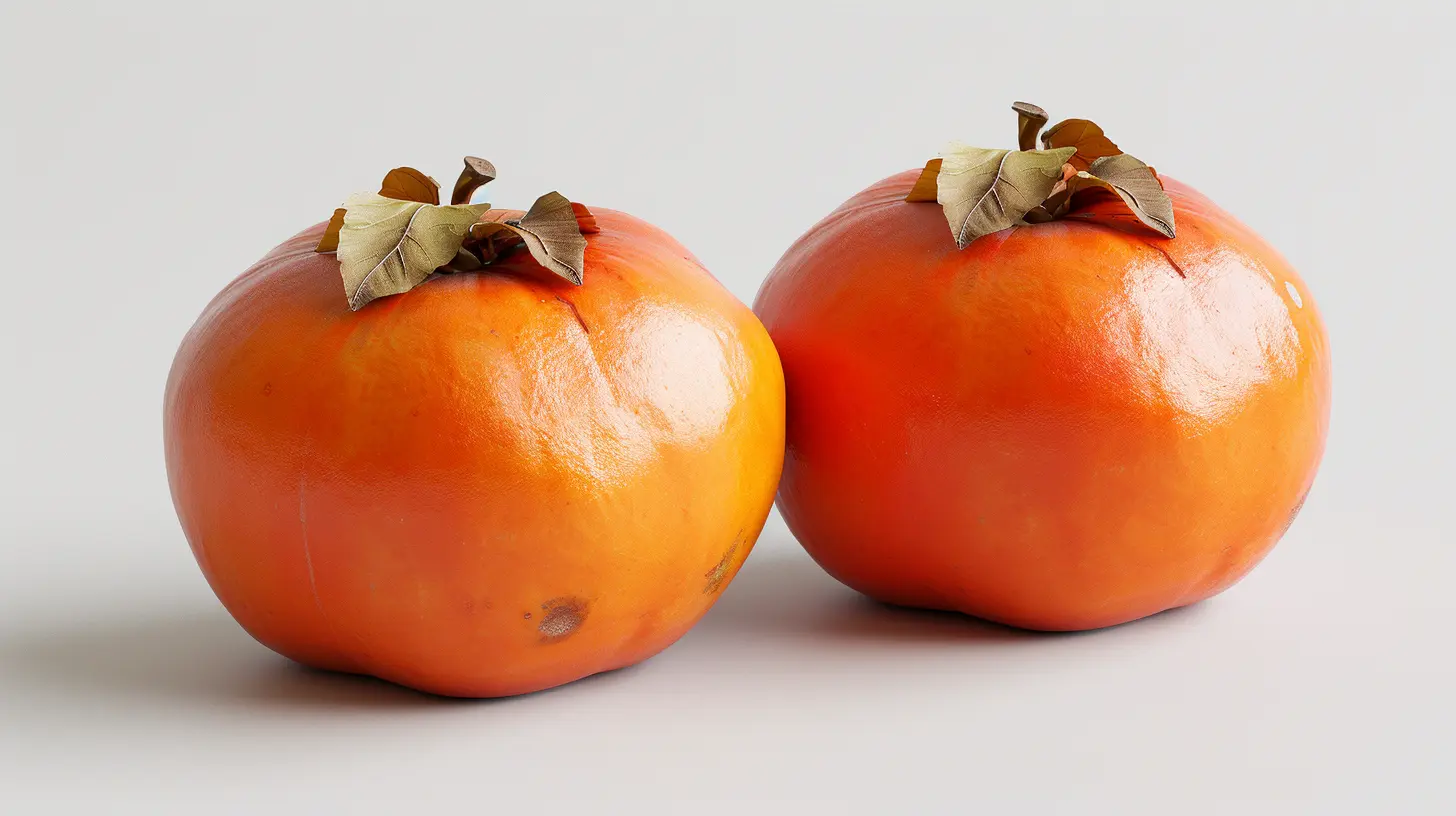Have you ever bitten into a sweet, juicy persimmon and wondered if this vibrant orange fruit could be more than just a delicious snack? For people living with diabetes, finding foods that are both tasty and beneficial for blood sugar control can feel like a constant challenge. But what if I told you that there might be Persimmon Fruit Benefits for Diabetes?
Imagine a fruit that not only satisfies your sweet tooth but also helps keep your blood sugar in check. It sounds too good to be true, doesn’t it? Yet, persimmons are gaining attention in the world of diabetes management for their unique combination of nutrients and potential health benefits.
From ancient Chinese medicine to modern scientific studies, persimmons have been praised for their medicinal properties. But what makes this fruit so special when it comes to diabetes? Is it the fiber content, the antioxidants, or perhaps something else entirely?
In this article, we’ll peel back the layers and discuss the persimmon fruit benefits for diabetes. We’ll explore the science behind this fruit’s impact on blood sugar levels, dive into its nutritional profile, and uncover ways to incorporate persimmons into a diabetes-friendly diet.
Nutritional Profile of Persimmon Fruit

Before we talk about the persimmon fruit benefits for diabetes, we need to find out about what nutrients the persimmon has. Persimmons are not just delicious; they’re also packed with nutrients that can benefit your health. Let’s take a closer look at what these vibrant orange fruits have to offer.
One medium-sized persimmon (about 168 grams) contains approximately:
| Nutrient | Amount | % Daily Value |
|---|---|---|
| Calories | 118 | – |
| Carbohydrates | 31g | 10% |
| Fiber | 6g | 24% |
| Protein | 1g | 2% |
| Fat | 0.3g | <1% |
| Vitamin A | 55% DV | 55% |
| Vitamin C | 22% DV | 22% |
| Vitamin B6 | 10% DV | 10% |
| Potassium | 270mg | 8% |
| Copper | 9% DV | 9% |
| Manganese | 30% DV | 30% |
As you can see, persimmons are relatively low in calories but high in fiber, making them a great choice for weight management. The fiber content also helps promote digestive health and can keep you feeling full for longer.
Persimmons are an excellent source of vitamins, particularly vitamin A and C. Vitamin A is crucial for maintaining healthy vision, immune function, and skin health. Vitamin C, on the other hand, is a powerful antioxidant that supports immune function and helps your body absorb iron from plant-based foods.
These fruits are also rich in various antioxidants, including beta-carotene, lutein, and zeaxanthin. These compounds help protect your cells from damage caused by free radicals, which may reduce the risk of certain chronic diseases.
The potassium content in persimmons can contribute to heart health by helping to regulate blood pressure. Meanwhile, the manganese supports bone health and wound healing.
It’s worth noting that persimmons contain natural sugars, which contribute to their sweet taste. While these sugars are not inherently harmful, people with diabetes should be mindful of their intake and consider the fruit’s effect on their blood sugar levels.
Overall, persimmons offer a wide array of nutrients in a low-calorie package, making them a nutritious addition to a balanced diet.
Persimmon Fruit Benefits for Diabetes

Persimmons may help manage diabetes through several key mechanisms. Understanding these processes can shed light on why this fruit could be beneficial for people with diabetes.
Glucose Metabolism
First, persimmons can improve glucose metabolism. The high fiber content, especially soluble fiber, slows down the absorption of glucose in the digestive system. This slower absorption helps prevent rapid spikes in blood sugar levels after eating. Some compounds in persimmons may also enhance insulin sensitivity, allowing cells to use glucose more effectively.
Reducing Body Inflammation
Another way persimmons may help is by reducing inflammation in the body. Chronic inflammation is often linked to insulin resistance and diabetes complications. The antioxidants found in persimmons, such as vitamin C and flavonoids, combat oxidative stress and lower inflammation levels. This anti-inflammatory effect may improve overall insulin function and help manage diabetes.
Aids Digestion
Persimmons also contain tannins, which can inhibit certain digestive enzymes. These tannins may slow down the breakdown of carbohydrates in the gut by inhibiting enzymes like α-amylase and α-glucosidase. By slowing carbohydrate digestion, persimmons can help prevent rapid increases in blood sugar levels after meals.
Here’s a simple breakdown of these mechanisms:
| Mechanism | How it works |
|---|---|
| Improved glucose metabolism | Fiber slows glucose absorption; compounds may enhance insulin sensitivity |
| Reduced inflammation | Antioxidants combat oxidative stress and lower inflammation |
| Enzyme inhibition | Tannins slow carbohydrate breakdown in the gut |
While these mechanisms show promise, it’s important to note that more research is needed to fully understand how persimmons affect diabetes management in humans. The effects may vary from person to person, and persimmons should be consumed as part of a balanced diet and diabetes management plan.
Scientific Evidence
The potential persimmon fruit benefits for diabetes management have been explored in various scientific studies. While more research is needed, especially in human trials, the existing evidence is promising.
Several animal studies have shown positive effects of persimmon on blood sugar control. In one study, diabetic rats given persimmon extract experienced significant reductions in their blood glucose levels. The extract also improved insulin sensitivity and reduced inflammation markers.
Another study focused on persimmon leaf extract and found that it helped lower blood sugar levels in mice with type 2 diabetes. The extract also appeared to protect the pancreas from damage, which is crucial for maintaining insulin production.
Human studies, though limited, have also shown encouraging results. A small trial found that consuming persimmon leaf tea after meals helped reduce post-meal blood sugar spikes in people with prediabetes. This effect was attributed to compounds in persimmon leaves that may slow down carbohydrate digestion.
Here’s a summary of key findings from scientific studies:
| Study Type | Key Findings |
|---|---|
| Animal Studies | – Reduced blood glucose levels – Improved insulin sensitivity – Decreased inflammation – Protected pancreatic cells |
| Human Studies | – Lowered post-meal blood sugar spikes – Potential to slow carbohydrate digestion |
Scientists believe that the persimmon fruit benefits for diabetes may be due to its high content of antioxidants, fiber, and specific compounds like tannins. These components may work together to influence blood sugar regulation, though the exact mechanisms are still being studied.
It’s important to note that while these results are promising, more extensive human trials are needed to confirm the effects of persimmon on diabetes management. The dosage, form of consumption (fruit, leaf extract, tea), and long-term effects all require further investigation.
Fun ways to add Persimmons to a Diabetes-Friendly Diet

Adding persimmons to your diabetes-friendly diet can be both delicious and nutritious when done thoughtfully. Here are some practical ways to enjoy this fruit while managing your blood sugar levels:
Portion Control
Start by keeping your portions in check. A small persimmon or half a large one is usually a good serving size for people with diabetes. This helps you enjoy the fruit’s flavor and benefits without overloading on carbs.
Pair with Protein
Combine persimmons with a source of protein to help slow down sugar absorption. Try slicing persimmon onto Greek yogurt or adding it to a handful of nuts for a balanced snack.
Add to Salads
Toss cubed persimmons into your favorite green salad. The fruit adds a sweet touch while the fiber from the greens helps manage blood sugar impact.
Breakfast Boost
Add thin slices of persimmon to your morning oatmeal or whole-grain toast with a spread of almond butter. This combination provides a mix of fiber, protein, and healthy fats.
Smoothie Ingredient
Blend persimmon into a low-sugar smoothie with leafy greens, chia seeds, and unsweetened almond milk for a nutrient-packed drink.
Here’s a quick reference table for incorporating persimmons into your meals:
| Meal | Persimmon Serving Suggestion |
|---|---|
| Breakfast | 1/2 persimmon with oatmeal and nuts |
| Lunch | Small persimmon slices in a mixed green salad |
| Snack | 1/4 persimmon with a small piece of cheese |
| Dinner | Persimmon salsa on grilled chicken or fish |
Remember to monitor your blood sugar levels when trying new foods and adjust your diet as needed. By being mindful of portion sizes and pairing persimmons with other diabetes-friendly foods, you can enjoy this sweet fruit as part of a balanced diet.
So Does a Persimmon a Day Keep Diabetes Away?
While it’s tempting to think that a single fruit could be the magic solution to managing diabetes, the reality is a bit more complex. Persimmons do offer some promising benefits for blood sugar control, but they’re not a miracle cure.
Persimmons are packed with fiber, antioxidants, and nutrients that can support overall health and potentially help manage blood sugar levels. Their low glycemic index means they’re less likely to cause rapid spikes in blood sugar compared to some other fruits. The high fiber content can also slow down sugar absorption, which is good news for people with diabetes.
So while a persimmon a day might not keep diabetes away on its own, it can certainly be a delicious part of a well-rounded, diabetes-friendly diet. Moderation, balance, and work closely with your healthcare team to find the approach that works best for you.
Today we talked about the persimmon fruit benefits for diabetes. Here are some other articles you might like:
What are the Most Unhealthy Fruits?
Rambutan vs Lychee: What you need to know
Persimmon Fruit Benefits for Diabetes
What are the Best Fruits for Muscle Growth?
Are Bananas good for Muscle Recovery?



